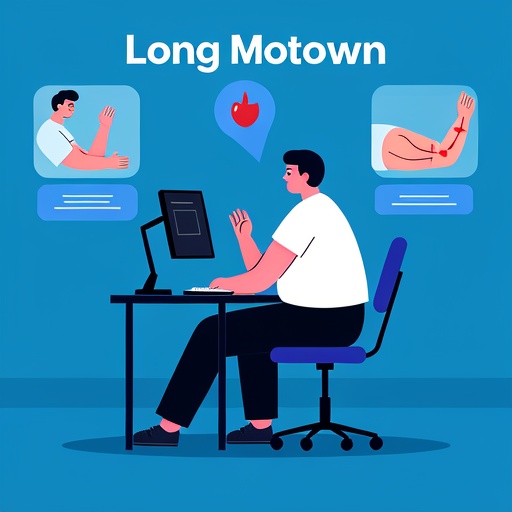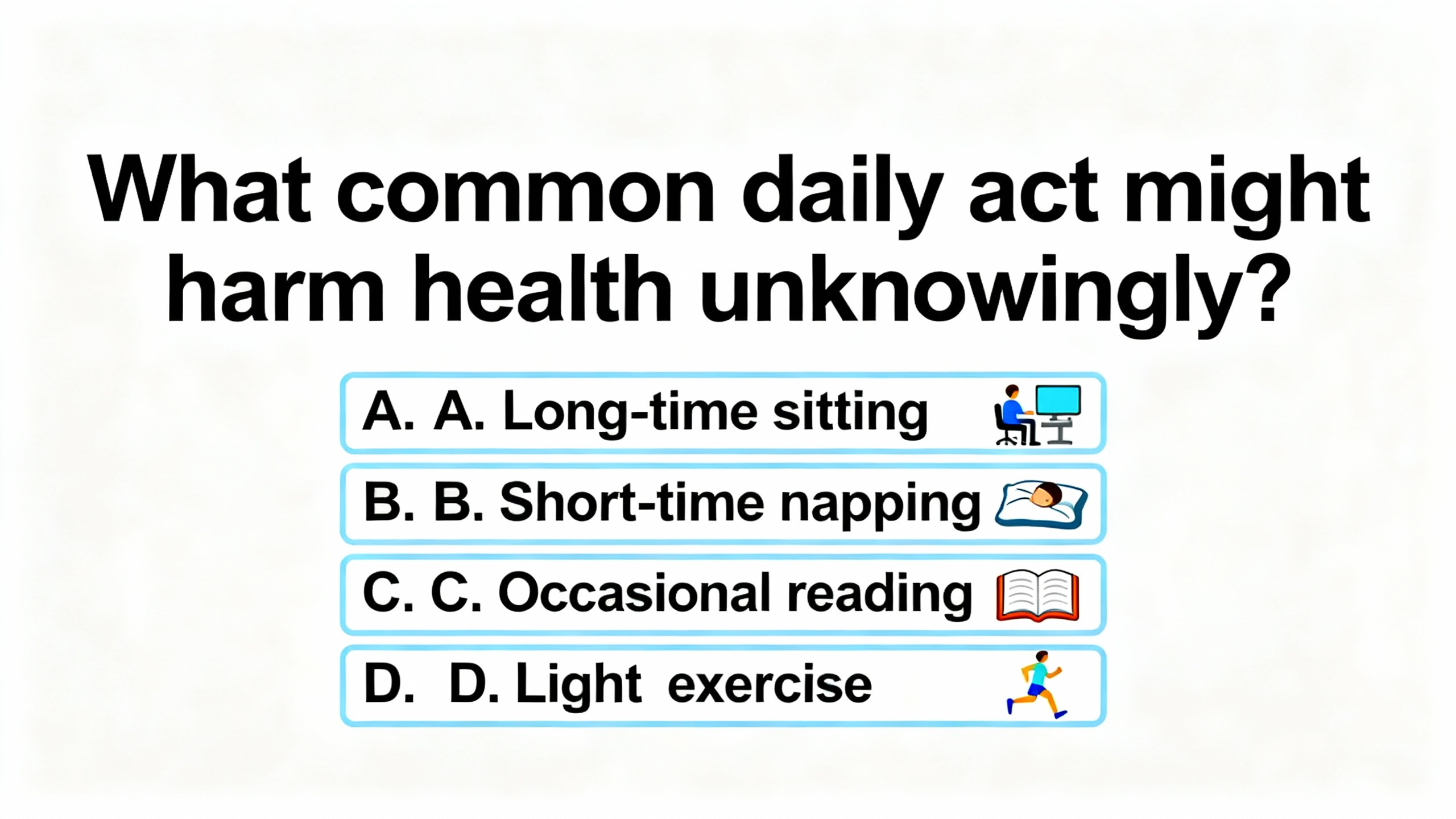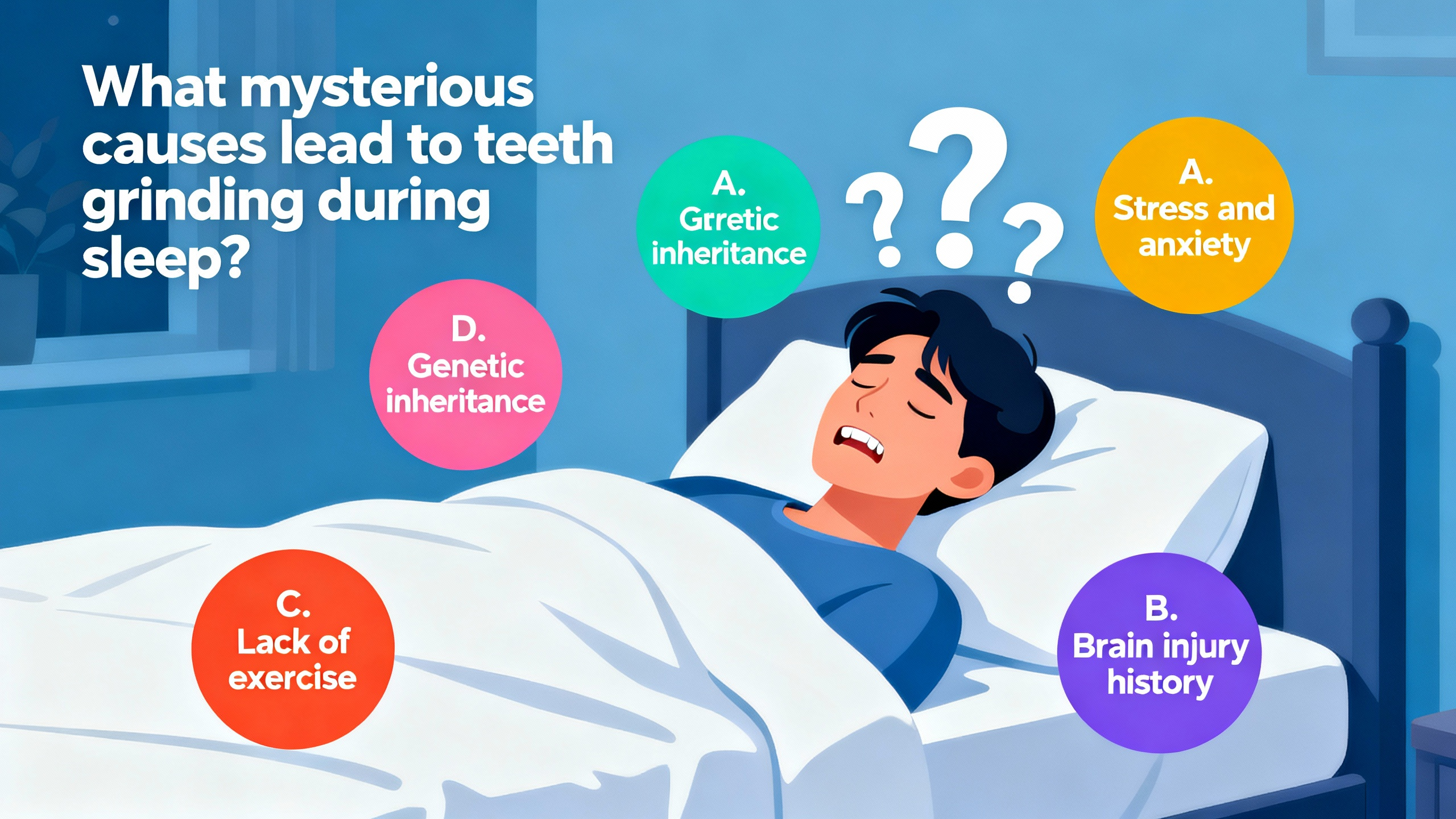Common Daily Acts That Harm Your Health
 In daily life, several common acts might harm our health without us realizing it. One such act is excessive sitting. In modern society, the nature of work has undergone a significant transformation. Many individuals are now engaged in sedentary jobs that require them to sit at a desk for long hours. Take, for example, office workers who spend their entire workday in front of a computer, typing away at keyboards and attending virtual meetings. Call center employees are another group that falls into this category, sitting in cubicles for extended periods while taking calls from customers. Sitting for extended periods can lead to a variety of health problems. It slows down the metabolism, which may result in weight gain over time. When we sit, our muscles are not actively engaged, and the body burns fewer calories compared to when we are standing or moving. This reduced calorie burn can cause fat to accumulate in the body, especially around the abdomen. A study conducted on office workers found that those who sat for more than eight hours a day were more likely to have a higher body mass index (BMI) compared to their more active counterparts. Prolonged sitting also increases the risk of cardiovascular diseases as it reduces blood circulation. When we sit, blood flow to the legs and other parts of the body is restricted. This can lead to the formation of blood clots, which can be extremely dangerous if they travel to the lungs or other vital organs. Muscles, especially those in the legs and back, become weak and stiff due to lack of movement. This can cause back pain, neck pain, and poor posture. For instance, sitting in a slouched position for hours can put excessive pressure on the spine, leading to spinal misalignment and chronic back pain. Additionally, sitting for too long has been linked to a higher risk of developing type 2 diabetes, as it affects the body's ability to regulate blood sugar levels. When we are sedentary, our muscles do not respond as effectively to insulin, which is responsible for transporting glucose from the blood into the cells. This can lead to elevated blood sugar levels and eventually diabetes.
In daily life, several common acts might harm our health without us realizing it. One such act is excessive sitting. In modern society, the nature of work has undergone a significant transformation. Many individuals are now engaged in sedentary jobs that require them to sit at a desk for long hours. Take, for example, office workers who spend their entire workday in front of a computer, typing away at keyboards and attending virtual meetings. Call center employees are another group that falls into this category, sitting in cubicles for extended periods while taking calls from customers. Sitting for extended periods can lead to a variety of health problems. It slows down the metabolism, which may result in weight gain over time. When we sit, our muscles are not actively engaged, and the body burns fewer calories compared to when we are standing or moving. This reduced calorie burn can cause fat to accumulate in the body, especially around the abdomen. A study conducted on office workers found that those who sat for more than eight hours a day were more likely to have a higher body mass index (BMI) compared to their more active counterparts. Prolonged sitting also increases the risk of cardiovascular diseases as it reduces blood circulation. When we sit, blood flow to the legs and other parts of the body is restricted. This can lead to the formation of blood clots, which can be extremely dangerous if they travel to the lungs or other vital organs. Muscles, especially those in the legs and back, become weak and stiff due to lack of movement. This can cause back pain, neck pain, and poor posture. For instance, sitting in a slouched position for hours can put excessive pressure on the spine, leading to spinal misalignment and chronic back pain. Additionally, sitting for too long has been linked to a higher risk of developing type 2 diabetes, as it affects the body's ability to regulate blood sugar levels. When we are sedentary, our muscles do not respond as effectively to insulin, which is responsible for transporting glucose from the blood into the cells. This can lead to elevated blood sugar levels and eventually diabetes.
 Another common yet potentially harmful daily act is over - using electronic devices. With the prevalence of smartphones, tablets, and computers, people often spend a significant amount of time looking at screens. In today's digital age, it is not uncommon to see people glued to their phones, scrolling through social media feeds, watching videos, or playing games. Students are also spending more time on electronic devices for studying, using laptops and tablets to access online resources and complete assignments. Staring at a screen for long periods can cause eye strain, dry eyes, and blurred vision. The constant focus on a small, bright screen requires the eyes to work harder, leading to fatigue. Many people experience symptoms such as redness, itching, and a burning sensation in their eyes after spending hours in front of a screen. The blue light emitted by these devices can disrupt the body's natural sleep - wake cycle, known as the circadian rhythm. Exposure to blue light in the evening suppresses the production of melatonin, a hormone that regulates sleep. This can lead to insomnia and other sleep disorders. For example, if you are scrolling through your phone right before going to bed, the blue light can trick your brain into thinking it is still daytime, making it difficult to fall asleep. Moreover, excessive use of electronic devices can also have a negative impact on mental health. It may cause increased stress, anxiety, and feelings of isolation, especially when people compare themselves to others on social media. Social media platforms often present a curated version of people's lives, where they only show the best moments. When we compare our own lives to these idealized versions, it can lead to feelings of inadequacy and low self - esteem. Additionally, spending too much time on electronic devices can reduce face - to - face social interactions, leading to feelings of loneliness and isolation.
Another common yet potentially harmful daily act is over - using electronic devices. With the prevalence of smartphones, tablets, and computers, people often spend a significant amount of time looking at screens. In today's digital age, it is not uncommon to see people glued to their phones, scrolling through social media feeds, watching videos, or playing games. Students are also spending more time on electronic devices for studying, using laptops and tablets to access online resources and complete assignments. Staring at a screen for long periods can cause eye strain, dry eyes, and blurred vision. The constant focus on a small, bright screen requires the eyes to work harder, leading to fatigue. Many people experience symptoms such as redness, itching, and a burning sensation in their eyes after spending hours in front of a screen. The blue light emitted by these devices can disrupt the body's natural sleep - wake cycle, known as the circadian rhythm. Exposure to blue light in the evening suppresses the production of melatonin, a hormone that regulates sleep. This can lead to insomnia and other sleep disorders. For example, if you are scrolling through your phone right before going to bed, the blue light can trick your brain into thinking it is still daytime, making it difficult to fall asleep. Moreover, excessive use of electronic devices can also have a negative impact on mental health. It may cause increased stress, anxiety, and feelings of isolation, especially when people compare themselves to others on social media. Social media platforms often present a curated version of people's lives, where they only show the best moments. When we compare our own lives to these idealized versions, it can lead to feelings of inadequacy and low self - esteem. Additionally, spending too much time on electronic devices can reduce face - to - face social interactions, leading to feelings of loneliness and isolation.
 Lastly, neglecting proper hand - washing techniques can also be detrimental to health. Many people wash their hands quickly without following the correct procedure. This means that harmful bacteria and viruses may still remain on the hands. These pathogens can then be transferred to the mouth, nose, or eyes, leading to various infections such as colds, flu, and gastrointestinal diseases. Let's take a look at some real - life scenarios where improper hand - washing can cause problems. In a busy restaurant kitchen, chefs and kitchen staff handle food ingredients all day long. If they do not wash their hands properly after handling raw meat or using the restroom, they can contaminate the food with harmful bacteria such as E. coli or Salmonella. This can lead to food poisoning among the customers. In schools, children are constantly in close contact with each other. If they do not wash their hands regularly, germs can spread quickly from one child to another, causing outbreaks of colds and other infections. Hand - washing is a simple yet effective way to prevent the spread of germs, but if not done properly, it fails to provide the necessary protection. The correct hand - washing technique involves wetting the hands with clean, running water, applying soap, and rubbing the hands together for at least 20 seconds, covering all surfaces including the backs of the hands, between the fingers, and under the nails. After that, the hands should be rinsed thoroughly under running water and dried with a clean towel or air - dried. However, many people do not follow these steps correctly. Some may only wash their hands for a few seconds, while others may not use soap at all. To ensure proper hand - washing, it is important to educate people about the correct technique. Schools, workplaces, and public places should provide clear instructions on hand - washing and make sure that soap and clean water are readily available. By following proper hand - washing techniques, we can significantly reduce the risk of getting sick and spreading germs to others.
Lastly, neglecting proper hand - washing techniques can also be detrimental to health. Many people wash their hands quickly without following the correct procedure. This means that harmful bacteria and viruses may still remain on the hands. These pathogens can then be transferred to the mouth, nose, or eyes, leading to various infections such as colds, flu, and gastrointestinal diseases. Let's take a look at some real - life scenarios where improper hand - washing can cause problems. In a busy restaurant kitchen, chefs and kitchen staff handle food ingredients all day long. If they do not wash their hands properly after handling raw meat or using the restroom, they can contaminate the food with harmful bacteria such as E. coli or Salmonella. This can lead to food poisoning among the customers. In schools, children are constantly in close contact with each other. If they do not wash their hands regularly, germs can spread quickly from one child to another, causing outbreaks of colds and other infections. Hand - washing is a simple yet effective way to prevent the spread of germs, but if not done properly, it fails to provide the necessary protection. The correct hand - washing technique involves wetting the hands with clean, running water, applying soap, and rubbing the hands together for at least 20 seconds, covering all surfaces including the backs of the hands, between the fingers, and under the nails. After that, the hands should be rinsed thoroughly under running water and dried with a clean towel or air - dried. However, many people do not follow these steps correctly. Some may only wash their hands for a few seconds, while others may not use soap at all. To ensure proper hand - washing, it is important to educate people about the correct technique. Schools, workplaces, and public places should provide clear instructions on hand - washing and make sure that soap and clean water are readily available. By following proper hand - washing techniques, we can significantly reduce the risk of getting sick and spreading germs to others.










